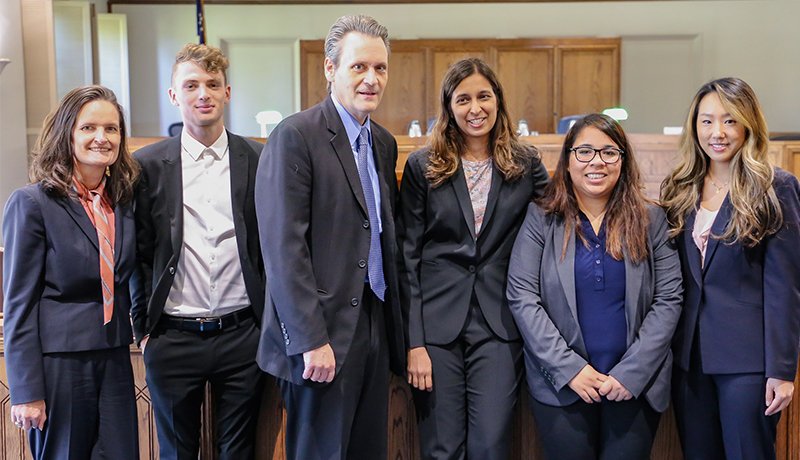SWLAW Blog | Events

January 31, 2019
Southwestern’s Appellate Litigation Clinic Scores a Significant Victory in the United States Supreme Court
In Dimaya v. Sessions, one of Southwestern's Appellate Litigation Clinic cases, the Supreme Court affirmed the Ninth Circuit, and confirmed what the students, Prof. Andrew Knapp, and amici curiae had argued: The sub-definition of the term 'crime of violence' as 'any other offense that is a felony and that, by its nature, involves a substantial risk that physical force against the person or property of another may be used in the course of committing the offense,' is unconstitutionally vague. Therefore, an immigrant cannot be removed from the country on the grounds that he or she was convicted of a "crime of violence," a term that ICE (Immigration and Customs Enforcement) has been claiming applies to crimes that the average person would be very surprised to hear described as a "crime of violence," such as residential trespass, evading arrest, and unauthorized use of a vehicle.
The case is significant not only for the many immigrants who were facing removal from the country under this unconstitutional statute, but also because it clarifies that constitutional principles such as due process apply in removal proceedings. As Justice Kagan said in her opinion, deportation is a "particularly severe penalty," so despite the fact removal proceedings are technically civil, not criminal, the Constitution still applies.
Prof. Knapp will be discussing the case in detail at Southwestern’s Law Review Symposium, "Immigration in the Trump Era," during the panel, Dimaya and the Crimmigration of Migration.